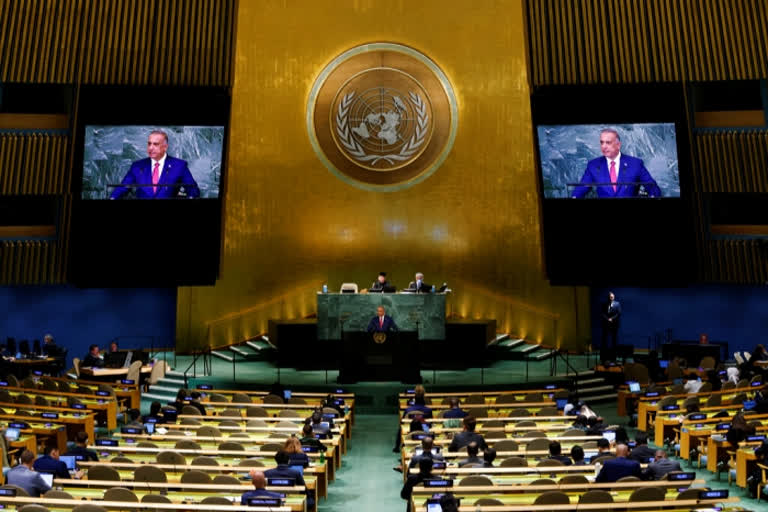United Nations: Two of the world's most persistent conflicts punctuated debate at the United Nations on Friday, as the annual gathering of world leaders deviated from the dominating issue of the war in Ukraine. Addressing hostilities thousands of miles apart and sharing little more than their decades of longevity, the Palestinian and Pakistani leaders nonetheless delivered similar messages, accusing a neighbor of brutality and urging world leaders to do more.
"Our confidence in achieving a peace based on justice and international law is waning," Palestinian President Mahmoud Abbas said. "Do you want to kill what remains of hope in our souls?" With Israel's military occupation of the West Bank in its 55th year and no substantial peace talks in 13 years, it was a stark if perhaps unsurprisingly pessimistic assessment. Israel's prime minister backed a two-state solution to the conflict in his own speech a day earlier — but there is almost no prospect for one in the near term.
Speaking to the U.N. General Assembly after the Palestinian leader, Prime Minister Shahbaz Sharif of Pakistan similarly addressed a generations-old fight, accusing India of a "relentless campaign of repression" in Jammu and Kashmir. Those mountainous lands have been claimed by both sides since British rule of the subcontinent ended 75 years ago and India and Pakistan were born.
Sharif urged world leaders and the U.N. to "play their rightful role" in resolving the fight and said India "must take credible steps" too. India's external affairs minister, S. Jaishankar, might provide a rebuttal to Sharif when he gets his turn at the rostrum on Saturday. India has called the region an integral part of its nation.
After days of world leaders returning again and again to Ukraine, Sharif and Abbas provided a reminder of the other problems facing the international community. Later, Iraqi caretaker Prime Minister Mustafa Al-Kadhimi spoke of the "political impasse" gripping his country for nearly a year and preventing the formation of a new government. He called for "serious and transparent dialogue" among the various factions.
And Bangladesh's prime minister, Sheikh Hasina, repeated complaints that 1 million Rohingya refugees in crowded camps in her country are a threat to its security. "The situation can potentially fuel radicalization," she said of those who fled a harsh crackdown by Myanmar's military. Hasina has said that repatriation is the only solution to the crisis, but that Bangladesh would not force them to go back to Myanmar, where members of the Muslim minority face extensive discrimination.
